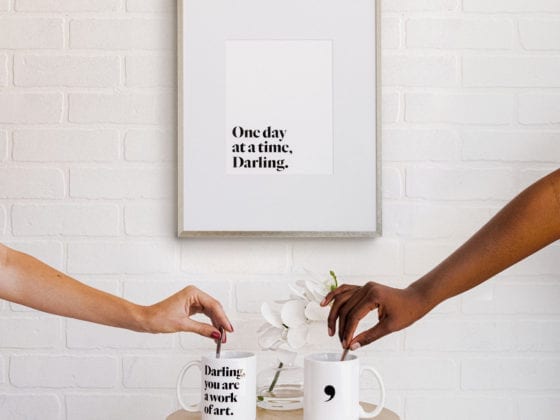We, human beings, spend most of our lives trying to fit in. The effort evolves and changes over time. Yet, from the moment we are introduced to playground politics, we become keenly aware of what it means to belong, and worse, what it means to not belong.
As we mature, we learn to direct that desire for belonging toward the places and groups that best foster our growth. We move away from our youthful pursuits of the singular “in-crowd,” and explore, instead, the richness and depth of the communities and cultures with which we can choose to identify.
The need itself is ever-present, but opportunities to meet that need are constantly expanding as the world grows more interconnected. Groups and gatherings convene in ways that are both conventional and not—in person and online—to create spaces of every kind that reflect our beautiful, true and uniquely individual selves. As the world interweaves, we find more places, however obscure, to stake a claim of belonging.
As the world interweaves, we find more places, however obscure, to stake a claim of belonging.
Except, remarkably, in politics.
For every moment of expansion in our shared global culture, there are countless moments of contraction in the increasingly binary world of politics. We are shoved around by every soundbite, headline and echo chamber—away from the more gracious middle ground to one rigid, inflexible side.
There’s no room for nuance in this environment. Nothing can be written with the depth and dimension of the larger context when words are plucked out and pasted on the front page to stand alone. In a world where connection is built upon shared ideals and values, the political sphere seems only to divide. A country built on the basis of “out of many, one” seems to have lost its sense of “many.”
The political sphere seems only to divide. A country built on the basis of “out of many, one” seems to have lost its sense of “many.”
As human beings who seek a sense of belonging, this system fails us. We are layered people with multifaceted ideas. Our beliefs and values are formed by our individual experiences and beautifully unique perspectives on the world. To boil those dimensions down to, “Which will you choose—this camp or that, right or left, blue or red?” is to reduce the most intricate and rich aspects of the human experience to something needlessly binary.
How can a culture so adept at inclusion survive a political system incapable of nuance? We want our convictions about social, environmental and political issues to be a source of unification. Yet, the American political parties’ demands for total allegiance only divide us. We want our most prominent leaders to stand for and promote peace. Yet, their messages seem only to incite anger.
We don’t want to belong to a group built on rigid, exacting intolerance. We want progress, open-mindedness, a holistic view of humanity and a platform of humble conviction and hope.
We don’t want to belong to a group built on rigid, exacting intolerance.
We want to vote for, not against. We want a system not polarized by hyperbole and fear but adapted for (and by) a changing country—a system as dynamic, creative and diverse as the people it claims to represent.
We want to belong to a country that celebrates shared human connection, not a war of the extremes that are bloodthirsty and incapable of compromise.
In pursuit of that, we persist.
The friction of our multidimensional edges against the crumbling walls of a binary system will either wear us down to resignation or set ablaze the slow flames of change. The choice is ours. We can recoil from that rub or rally against it. We can throw our hands up in despair or we can double down on our efforts toward progress, reform and big, imperfect action.
Which will you choose—the many or the one?
In our current political climate, do you think there is room for nuanced thinking? What is the problem with extremes?
Image via Trever Hoehne, Darling Issue No. 6











2 comments
An interesting article from an insightful point of view. However, I wonder if many prefer the system as it is, simply because it does give them a way to immediately become part of a group with very little effort. A way to belong to often passionate movements simply by narrowing their full range of beliefs to one party or the other to gain immediate acceptance. It can certainly be appealing to someone who feels like they have never “belonged” before.
That’s such an insightful point of view, Brooks! Thank you for reading and sharing your thoughts.